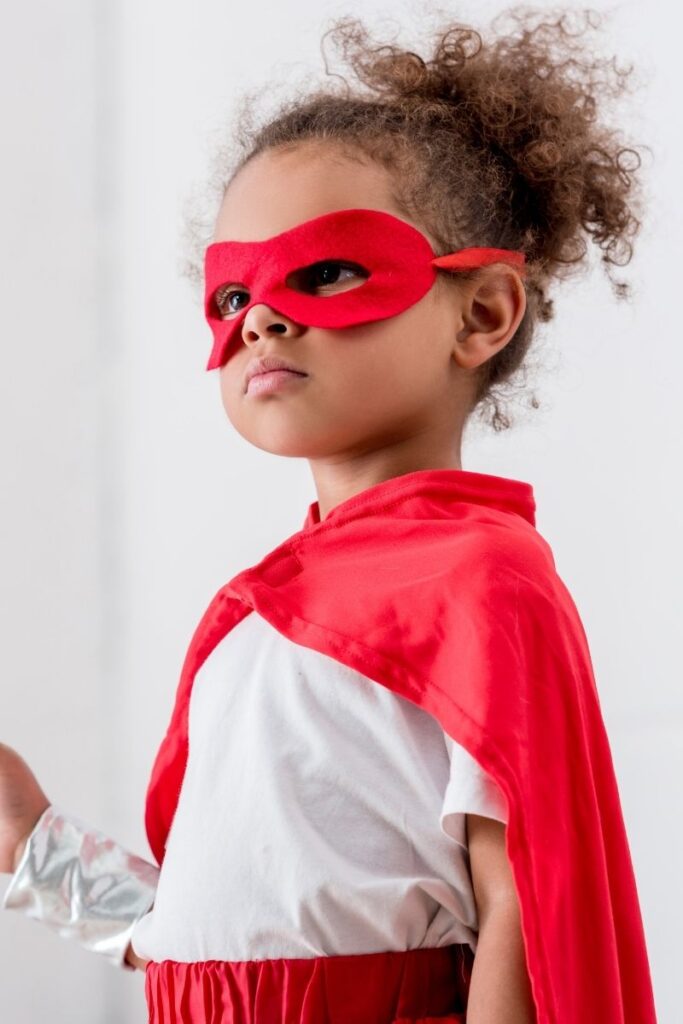What happens when the costumes go on?
Oct 26, 2020
You’ve probably seen it - kids who put on a costume and instantly become the character, talking and acting like them as they enter the world of fantasy. A look at this years’ top selling costumes gives us an inside peek at how children love to pretend. Here are the top 10: 1) Princess, 2) Superhero 3) Spiderman 4) Avengers 5) Batman 6) Witch 7) Ghost 8) Vampire . 9) Frozen 10) Pirate.
Of these top 10, we see movie based super heroes and heroines plus a couple that could be considered dark and/or violent. What does this tell us?
What’s happening in the minds of preschoolers who choose these roles, either on the side one who fights evil or a bad character who chooses power over the innocent?
For most of my career we’ve had “no play fighting” and “no gun play” policies in programs for young children. It’s been the general belief that this play leads to aggressive behavior that could be harmful to kids.It’s certainly true that aggressive play can be bullying and hurtful.
But when there are rules in place that every child and every grownup understands and follows, children are able to work out the ethics of power and justice in good/evil circumstances through pretend play.
In her book, Discovering the Culture of Childhood, Emily Plank gives an insightful look at the benefits of allowing children freedom in their play as a way of processing not only the realities of their own world but also the stories they consume through media.
Everyone involved in the play needs to want to be involved and needs a clear strategy for exiting the pretend play if they wish.
Have a conversation with your children about how they can invite others to play and the importance of listening to their friends and respecting their ideas about the “story” that’s developed through pretend.
The simple phrase, “Looks like ______ wants to…” can help a child pick up on non-verbal cues that another child may be giving and help them navigate their play story to meet everyone’s needs. Give children language to use when they don’t want to play and choose to exit the play. “I don’t want to ________ anymore.”

Children use play to explore themes of power and justice. Think of what it feels like to be a child – pretty powerless in most circumstances!
When they put on a costume that indicates “I’m in charge” they are able to practice what it feels like to be powerful. They’re allowed, in this role, to try on behaviors that are otherwise quieted down.
Through play they figure out how to use a powerful voice, how to punish what hurts them and how to help others. Think of the freedom they’ll experience! Your presence guides and keeps them safe.
Give children an opportunity to be ‘bigger’ than you through the roles you take as you pretend play together. Give them permission to be in charge.
Stay connected with news and updates!
Join our mailing list to receive the latest news and updates from our team.
Don't worry, your information will not be shared.
We hate SPAM. We will never sell your information, for any reason.

